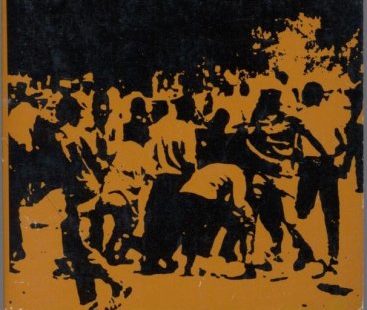A hundred years separates the writers Louisa May Alcott and Quentin Tarantino, a hundred years of ground lost and gained; but only twenty years separates Quentin Tarantino and Greta Gerwig, the directors. Yet the gap seems much larger than that; even set in the nineteenth century, Gerwig is telling a modern story, a story that is looking to the future, while Tarantino is telling a story about the past – and a past that seems overshadowed by its own past, at that. Everything that is important in Gerwig’s story will happen in the future, while everything that is important in Tarantino’s film happened in the past. These two films circle each other cautiously.
Both their stories operate in the long shadow of horrific wars. The Little Women are given that nickname by their absent father, who is fighting in the Civil War, but that war is largely an off-screen device. Cliff Booth in Once Upon A Time is a World War 2 veteran who clearly liked violence a little too much, but that war is present mainly in Rick Dalton’s cornball war movie “The 14 Fists of McClusky”. These are the two great consensus wars of American history: American wars fought by good Americans for the right reason; the neverending battle for the heart and soul of America.
The problem for both films is that, although both those wars were won, neither of them finished the job. The Civil War certainly didn’t eliminate the white supremacy that knits together US history, and World War 2 certainly didn’t cleanse the skeletons out of the US closet; in fact Charles Manson’s alleged Helter Skelter scenario was bizarro white supremacism that hoped ardently another race war. The war never ends in the US, and certainly not in Hollywood, where all those wars are endlessly recycled for fun and profit. But one shared message in both these films is that although we live in the long shadows of horrific wars, those wars are not the only thing that is happening; we can in fact live in those shadows, and live well.
The question of what it means to live well is answered plainly by both movies: it means to live with meaning. That meaning is radically different not just between the two films, but even within Little Women, the women themselves choose very different paths to meet their meaning. This marks both films as avowedly American: the characters are independent, they must make themselves, they must make choices. This culture seems so normal to us now, that it is hard to imagine ourselves outside of it; but we are outside of it, it is alien to us, and not just because of the historical distance between ourselves and these characters from different times. Even within these films, the characters must cut themselves from the cloth that is available to them; and that cloth is family.
Both films have plots – in the case of Little Women probably too much plot, but in the case of Once Upon A Time in Hollywood definitely too little – but those plots are incidental. What we are invited to do in both films is just to spend time with the characters, to step into their lives for a while, to feel the cloth of their relationships. The focus of both films are family relationships, for what is Cliff to Rick except “a buddy who is more than a brother, and a little less than a wife”? And by the end of Little Women, the sisters are running a school together financed by an inheritance from their aunt – finding careers by way of their family.
Once Upon A Time in Hollywood pits the sitcom-ready family of Rick, Cliff, Francesca and Brandy the pit bull against the Manson Family – a hall of mirrors version of a family, distorted all out of shape. Check it out, grandfather is sleeping with his granddaughters at the behest of his wayward son – how can you not despise them? These are the bad guys that we always needed, bad guys that are absent from Little Women. In Little Women, there are no bad guys, unless you want to count the patriarchy as a bad guy, in which case: the bad guy in Little Women is the Big Bad Guy. But in these stories the guys in general are not bad guys; they’re very good guys who seem suspiciously enlightened for their times.
The pivotal point in both films is death. When Sharon does not die, it is the catalyst for Rick and his family to get back on their feet. Sharon’s failure to die is a fantasy, because we know for a fact that she definitely did die. Meanwhile Jo tries to will herself into a fantasy that Beth has not died, and fails; but Beth’s death is the catalyst for the remaining Little Women to knit themselves back together. Death in Little Women is real, it is the anticipation of loss and the subsequent living with it, that big black hole between the past and the future which some people fall into and never climb out. Death in Once Upon A Time is movie death, garish and entertaining and hollow.
Both films end in a fantasy of the balance restored: the women will find fulfilment in their personal and professional lives, and will be able to stay together; the men will find redemption, and through redemption be offered a way out of the dead end they find themselves in. Both women and men are walled in by the expectations of the society they live in, but are unable to break down those walls; the best that they can do is to use the walls to build a house to live in. So these are fantasies, and even seem to be indicated as such by the directors, although they are both achieveable fantasies, ways in which the world could turn if you could apply just a little bit of pressure at the right point.
That restoration is the shared project of both films: the women can stay together as a family, lit by an endless small-town summer; the men can keep on doing the things that give their lives meaning, even if those things themselves are not particularly meaningful. Nobody would begrudge them that, but what are the differences between them? At the end of Little Women, the women are reunited; at the end of Once Upon A Time, the men say farewell. When the women explain themselves, it is a reflection of their interior lives; when the men explain themselves, it is to create those interior lives through the act of exposition itself. The women feel that their lives are just beginning, while the men feel that their lives are just ending. And so on, and so forth; fantasy serves entirely different purposes for each of us.


